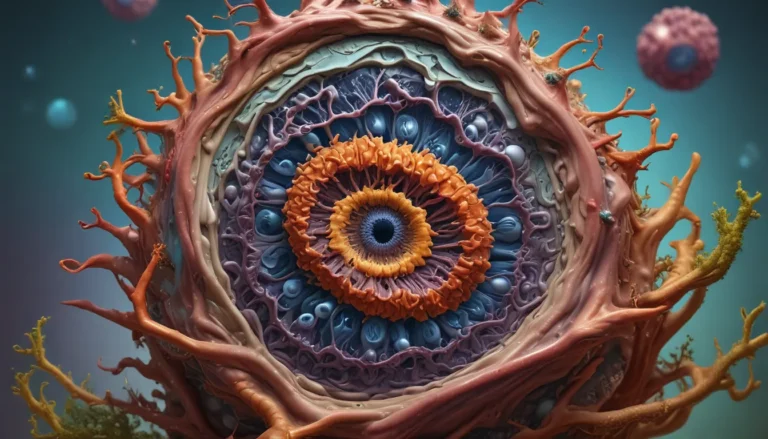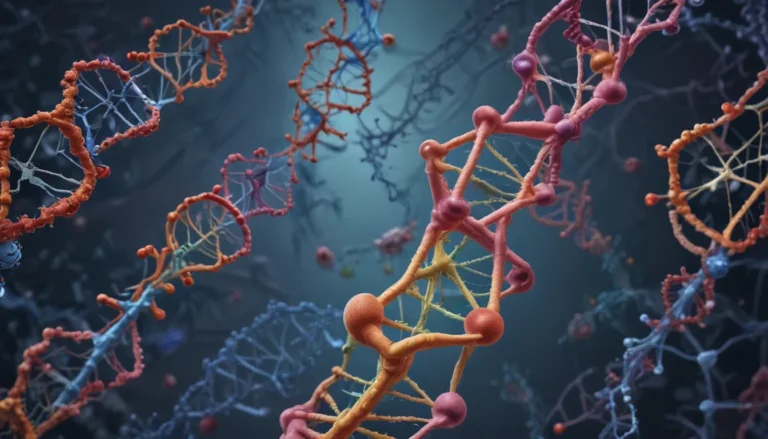A Note About Images: The images used in our articles are for illustration purposes only and may not exactly match the content. They are meant to engage readers, but the text should be relied upon for accurate information.
Parasitic diseases are a captivating and vital aspect of the field of biology, often overshadowed but deserving of our attention. These diseases are caused by a variety of parasites that can infect humans, animals, and plants, showcasing the remarkable complexity and adaptability of these organisms. From their mode of transmission to their impact on human health, parasites play a significant role in the biological landscape. In this article, we will delve into some captivating facts about parasitic diseases, shedding light on their intricate nature and the interactions they have with their hosts. Get ready to explore the world of parasites and uncover astonishing information about these tiny yet powerful creatures.
Key Takeaways:
- Parasitic diseases affect millions worldwide, causing severe health consequences. Understanding their complex life cycles and prevention strategies is crucial for protecting public health and combating these captivating yet challenging diseases.
- Parasites can manipulate host behavior and infect various organs, posing a threat to both human and animal health. Ongoing research and innovation offer hope for improved diagnosis, treatment, and prevention of these intriguing organisms.
Parasitic Diseases Affect Millions of People Worldwide
Parasitic diseases have a widespread impact, affecting millions of individuals around the globe. These diseases, caused by diverse parasites such as protozoa, helminths, and ectoparasites, can have devastating effects on human health. For example, malaria alone infects over 200 million people annually, highlighting the scale of the issue and the need for continued efforts in prevention and treatment.
Parasites Can Manipulate the Behavior of Hosts
One fascinating aspect of parasitic diseases is the ability of parasites to manipulate the behavior of their hosts. An example of this is the parasite Toxoplasma gondii, which can alter the behavior of infected rodents, making them lose their fear of predators. This manipulation increases the chances of the parasite being consumed by its final host, showcasing the intricate strategies parasites have developed for their survival.
Some Parasites Have Complex Life Cycles
Parasites often have complex life cycles that involve multiple hosts or different stages of development. Take, for instance, the parasitic flatworm Schistosoma, which causes schistosomiasis. Its life cycle includes freshwater snails as intermediate hosts and humans as the definitive host, underscoring the intricate nature of parasitic interactions and the challenges they pose for control and prevention efforts.
Parasitic Diseases Can Have Severe Consequences
The consequences of parasitic diseases can be severe for human health. The parasite Trypanosoma cruzi, responsible for Chagas disease, can lead to heart failure and neurological disorders if left untreated. Millions of individuals in the Americas are affected by this debilitating condition, emphasizing the need for improved diagnosis, treatment, and prevention strategies.
Parasites Can Infect Various Organs
Parasites have the ability to infect various organs in the human body, from the intestines to the liver, lungs, and even the brain. This diverse range of organ involvement can lead to a variety of symptoms and complications, highlighting the importance of understanding the specific impacts of parasites on different parts of the body for effective diagnosis and treatment.
Prevention and Control of Parasitic Diseases
Prevention and control strategies play a crucial role in combating parasitic diseases. Measures such as promoting good hygiene practices, implementing vector control efforts, and administering appropriate medications can significantly reduce the burden of these diseases. Public awareness and healthcare initiatives are essential in implementing effective prevention strategies and minimizing the impact of parasitic diseases on global health.
Zoonotic Parasitic Diseases
Many parasitic diseases are zoonotic, meaning they can be transmitted between animals and humans. This poses a challenge for both human and animal health sectors, necessitating close collaboration to monitor, prevent, and control these diseases. Examples of zoonotic parasitic diseases include Lyme disease, transmitted by ticks, and echinococcosis, transmitted by dogs.
Emerging Parasitic Diseases
The emergence of new parasitic diseases continues to pose threats to global health. Factors such as changing environmental conditions, globalization, and human behavior contribute to the spread of these diseases. Examples of emerging parasitic diseases include babesiosis, caused by Babesia parasites, and cryptosporidiosis, caused by Cryptosporidium parasites, emphasizing the need for ongoing research and innovative approaches to address these evolving challenges.
Ongoing Research and Innovation
Scientists and researchers are continually advancing our understanding of parasitic diseases and developing innovative strategies to tackle them. Advances in genetic sequencing, drug discovery, and vaccine development offer hope for improved diagnosis, treatment, and prevention of these captivating yet challenging diseases. By investing in research and fostering collaboration, we can work towards mitigating the impact of parasitic diseases and promoting global health.
As we have explored these 9 captivating facts about parasitic diseases, it becomes evident that these organisms play a significant role in shaping human and animal health. Understanding their biology, transmission dynamics, and control measures is crucial for safeguarding public health and fostering a safer future.
Conclusion
In conclusion, parasitic diseases are both fascinating and concerning, showcasing the intricate relationships between parasites and their hosts. From the devastating effects on human health to the broader implications for ecosystems, parasites hold a significant influence on our lives. By deepening our knowledge of these diseases, we can enhance our ability to prevent, diagnose, and treat them effectively. Through raising awareness and supporting ongoing research efforts, we can take steps towards reducing the burden of parasitic diseases and creating a healthier world for all.
By focusing on the most captivating aspects of parasitic diseases and presenting them in an engaging and informative manner, we can develop a deeper appreciation for the complexity and impact of these organisms. Remember to stay informed, advocate for public health measures, and support research initiatives that aim to address the challenges posed by parasitic diseases. Together, we can work towards a future where the threat of parasitic diseases is minimized, creating a more sustainable and resilient global community.





